Birth and infancy.
The First Four Years By Most Honorable Founder A. Langston Taylor Reprint from The Crescent, Spring 1949 Special Edition, 35th Anniversary Most Honorable Founder Taylor gives an intimate picture of those days of birth and infancy.
Phi Beta Sigma Fraternity represents the triumph of an idea--the success of a fixed desire. If we are to be precise about it, the idea of the Fraternity had its origin not at Howard University, as might be expected, but in my hometown, Memphis, TN.
This is how it came about. One dull summer day in 1910, I was on my way home from downtown and paused for a while at Bumper's Beale Street Grocery Store to pick up the latest news from the Squash Center, which usually held afternoon sessions there. I engaged in conversation with a young man recently graduated from Howard University, and since I had already decided to go to Howard, I was very much interested in what he had to say about the University. He dwelt at length on the activities of Greek-letter fraternities there. His talk gave me an idea, and from that day, Phi Beta Sigma was in the making.
I entered Howard University as a special student on November 23, 1910 and early the next Spring began to lay plans for carrying out the idea I had conceived the summer before. I found the work of organizing a fraternity much harder than I had expected and it took a much longer time than I had allotted to work.
I did not allow organizational difficulties to upset my plans but kept pressing toward my goal, which was to establish a college fraternity.
It was in the afternoon of the last Saturday of October 1913. The University had recessed on account of the death of President Newman’s wife. I was crossing the campus on my way to Clark Hall and met Leonard F. Morse, a former roommate of mine. I knew Morse well - his college record and his philosophy of life. I knew that he was reliable and sincere with a strong determination to carry out whatever program of work he undertook. It was because of these elements of character that I selected him to become co-partner in the founding of a new national fraternity.
Our chance meeting afforded me the first opportunity to discuss the matter with him. I told Morse I intended to start the organization with a small group of carefully selected students. He accepted the proposition, and we agreed on Charles I. Brown as third member of the founding group
Our talk ended here. I continued on my way to Clark Hall, happy in the thought that I had broken ground.

